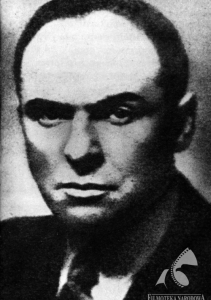Józef Lejtes

Film director, screenwriter. He was born on November 22, 1901, in Warsaw, died on May 27, 1983, in Los Angeles. During the Polish-Bolshevik War, he volunteered for the army. Having received his music education, he enrolled at Jagiellonian University in 1920 to study philosophy and chemistry. Later, he moved to Vienna, where, in 1926, he became involved with the film industry as an assistant to Robert Wiene and Michael Curtiz.
As a director, he made his debut in 1928 with Huragan/Hurricane – the story of the January Uprising. He would later specialise in historical and patriotic films directed with great skill, such as: Barbara Radziwiłłówna (1935, award in Venice), Kościuszko pod Racławicami/Kosciuszko at Racławice (1938), Z dnia na dzień/From Day To Day (1929), a moving story about the psychological consequences of the atrocities of war, Córka generała Pankratowa/General Pankratov's Daughter (1933), referring to the revolutionary events of 1905, or the best film in this vein, set in the same era, namely, Młody las/Young Forest (1934) – the dramatic story of a school strike against the Russian occupier.
Lejtes is also known as the director of highly successful film adaptations of literary works: Róża/Rose (1936) by Stefan Żeromski, Dziewczęta z Nowolipek/Girls of Nowolipki (1937) by Pola Gojawiczyńskiej and Granica/Border (1938) by Zofia Nałkowska. Inżynier Szeruda i Hania/Engineer Szeruda and Hania was interrupted by the outbreak of World War II.
During the war – in 1940 – he organised a film crew of the Carpathian Rifle Brigade in Palestine. In 1943, he made a documentary dedicated to the battle route of that formation. After the war, he worked for the British, Israeli and U.S. film industry, directing episodes of popular TV series, such as Bonanza and Alfred Hitchcock Presents.
Jerzy Armata
Selected filmography
-
1934
YOUNG FOREST
-
1937
THE GIRLS OF NOWOLIPKI






